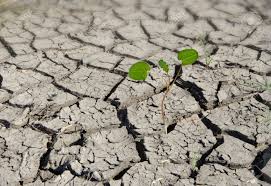For some of us, the astonishment felt as a result of the Federal Election result has been replaced by a sense that, where policies are concerned, almost everything is now on hold.

Anyone needing a reminder of the generalist and homely agenda that won the day should re-read the Prime Minister’s Press Club address of Thursday 16 May. It is the clearest and most detailed statement of Scott Morrison’s case, with its focus on the silent majority and avoiding risks by avoiding change.
That speech is full of praise for “the honest, decent, humble aspirations of Australians going about their lives”. It celebrates those who have no time for political activity because “they’re too busy doing the things that matter most to them and frankly build our country and make it stronger every single day”.
If the Prime Minister’s aim was to get politics off the front pages, he has probably succeeded. With virtually nothing on the national agenda, politics and current affairs seem to have become uninteresting. During the election campaign there was a contest of ideas on a number of fronts. They included wages and Newstart; cancer and national health reform; the speed at which the nation’s response to climate change can be improved; coal and renewable energies as parts of the economic base of rural areas; child care; tilting the balance in the taxation system away from people who are reasonably well-off; housing policy; and dental care.
Now all we are left with are questions relating to free speech, including as they relate to the role of the Federal Police, the Israel Folau case, and the potential advantages of a Charter of Rights.
Of course this is an absolutely fundamental issue. And the media and commentators are not yet dealing with the matter – expounding. exploring, explaining – in a way that will enable us all to be involved.
For example, discussion on last Sunday’s Insiders on ABC TV (Barrie’s last) hinged on whether the legislated changes have gone too far in enabling intrusion of government agencies into people’s private lives. The Labor opposition will presumably adopt the position that many apparently feel and argue that the balance is not yet right. Whistle blowers and journalists are now too exposed; the nation’s security and other agencies are not sufficiently accountable to the public.
These are complex matters and, to date, there has been very little simple explanation of the nature of the recently-legislated changes. The discussion on Insiders started to do this but then the question seemed to become hypothetical when it was revealed that recent AFP raids were legitimised by the provisions of the previous Act, not the new one.
All of us will continue to grapple with understanding of these complex political and ethical issues and how they are codified and managed in Australia. But in the meantime discussions of things such as public housing policy and dental care for older people seem to have disappeared over the far horizon.
It’s as if the Grand Final was played halfway through the season and, now that it is over, there is nothing but a series of dead-rubber fixtures to which only a few tragics will drag themselves each Saturday afternoon as the Winter rolls on. The rest of us have tuned out from the competition and will stay sullenly indoors until a new season begins.

